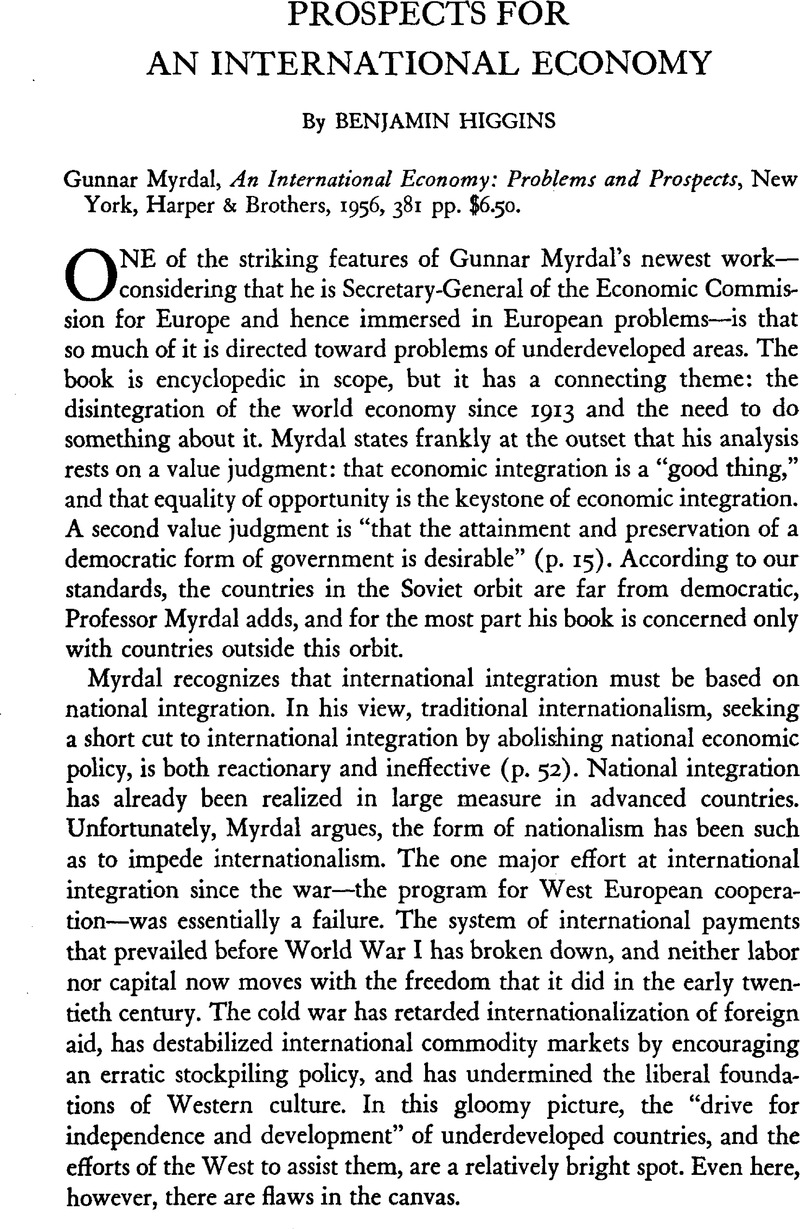No CrossRef data available.
Published online by Cambridge University Press: 18 July 2011

1 A small fraction of aid to the United Kingdom and the Netherlands was used for the British colonies and the Netherlands East Indies (now Indonesia).
2 Cairncross, A. K., Home and Foreign Investment, 1870–1913, Cambridge, Eng., 1953, p. 3.Google Scholar
3 This point was first suggested to me by Professor Eugene Grasberg.
4 Moreover, a common procedure is for ICA to have its own building, in which experts have their offices and report to the Director of the Mission. They advise the Director on his capital assistance program as well as advising the host government on its policy. With such an arrangement, it is almost inevitable that people in the recipient countries will link aid to advice, even if ICA officials do everything in their power to keep them apart. The usual practice with United Nations, Colombo Plan, or ICA-contract advisers, on the contrary, is for them to have their desks in that department of the host government which they are assisting, and to advise no government other than the recipient one.
5 Millikan, Max F. and Rostow, W. W., A Proposal: Key to an Effective Foreign Policy, New York, 1957.Google Scholar